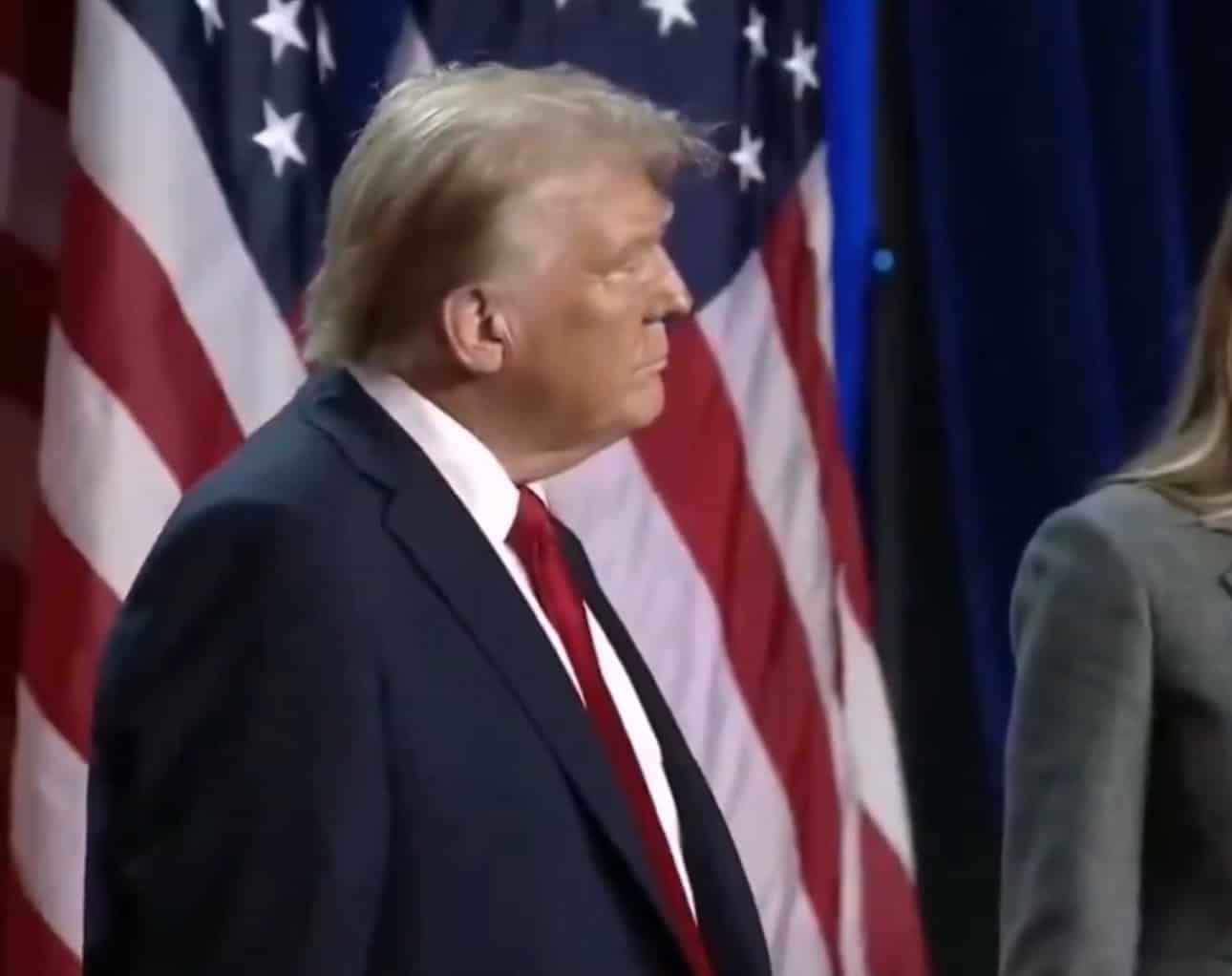
Authored by Jeff Carlson & Hans Mahncke via Truth Over News,
Georgia, the site of massive election misinformation, questionable results, incomplete audits and a mysterious come-from-behind razor-thin win by Joe Biden in 2020, appears to be at it again. Or perhaps we should say Georgia Secretary of State Brad Raffensperger is at it again.
Kylie Jane Kremer brought the matter to our attention through a series of posts on X. As Kremer notes, “Raffensperger sent an email, in a private capacity, that went to a list of trial lawyers across Georgia soliciting $5 million by November 1st to help in his effort for a 501(c)4 called “Election Defense Fund”, asking lawyers to donate or contact him via his private gmail account & personal cell phone number.”
In the email, Raffensperger claimed that “Election deniers and conspiracy theorists have taken their anger to new levels, employing a variety of tactics including intimidation, legal challenges, and rule changes. In Georgia they have threatened, harassed, and sued election officials. And as you know, most recently the Georgia State Election Board was taken over by three individuals who have pledged to put partisanship over sworn duty.”
Raffensperger appears to be referring to (and trying to intimidate) the three Republican members of Georgia’s five -person State Election Board, Dr. Janice Johnston, Rick Jeffares and Janelle King.
Raffensperger also appears to be attempting to intimidate and silence anyone who might challenge the outcome of Georgia’s 2024 presidential election.
On September 20th, Johnston, Jeffares and King voted in favor of requiring a hand count of all ballots to ensure that the number of physical ballots equaled the machine count total at the precinct level. This new rule was opposed by Georgia state elections officials, including Raffensperger, who said it could create chaos and confusion on Election Day.
In advance of the vote by the State Election Board, Raffensperger issued a formal statement, claiming that “Activists seeking to impose last-minute changes in election procedures outside of the legislative process undermine voter confidence and burden election workers… misguided attempts by the State Election Board will delay election results and undermine chain of custody safeguards. Georgia voters reject this 11th hour chaos, and so should the unelected members of the State Election Board.”
If you find it odd that Raffensperger would refer to his three fellow Republicans as “activists” while he worked to thwart common-sense changes that would dramatically increase the security of Georgia’s 2024 election, you’re not alone.
Raffensperger was apparently so concerned that he rushed to CNN-affiliate WSB, breathlessly claiming that “the State Election Board wants to take us back in time. I guess what they want is to see elections take until 3 a.m. like in Detroit, Michigan. We don’t want to do that in Georgia. Not on my watch.”
Although the move by the three Georgia Republicans had the support of President Trump, lawsuits were immediately filed – and on October 16th a Georgia court blocked the rule changes, inexplicably declaring that they were “illegal, unconstitutional and void.”
We don’t have a copy of the email (Kremer doesn’t have the full email either) but Georgia’s GOP Chairman Josh McKoon appeared to confirm the email was real in a post on X.
McKoon stated that “This email communication by Mr. Raffensperger is a dangerous and unwarranted attack on sworn elections officials doing their duty which threatens to interfere in the conduct of the election and undermine confidence in the outcome.”
McKoon went on to write that Raffensperger “spitefully harasses and undermines the public servants who have stepped up to do the job that he so spectacularly failed to do in 2020 and solicits $5 million for a secret, dark money fund “not subject to public disclosure” to dox and threaten election officials.”
As we mentioned earlier, Kremer included screenshots of the email in her post. In those screenshots was a snapshot of the address of the website, Elections Defense Fund, that Raffensperger purportedly established for the purposes of raising donations.
We looked the Elections Defense Fund up and found the site to be sparse but the language matches what is said in the email:
“Election Defense Fund, Inc. is a 501(c) (4) dedicated to protecting this year’s election results, and standing up against those who attempt to delay certification.”
“Election Defense Fund, Inc will identify local election officials who are most likely to not certify or otherwise attempt to interfere with results; educate the public to remind election officials of their duty to follow the law and the potential consequences of not doing so; support lawsuits that seek to force election officials to uphold their legal duties, and defend election officials who are harassed, targeted, or sued for doing their lawful duties.”
The site notes that “Contributions to Election Defense Fund, Inc. are confidential and not disclosed to the public and are not deductible as charitable contributions for federal income tax purposes.” The site, which claims to be a “a non-profit 501 c(4) organization” also states that it’s “Not endorsed by any candidate or candidate committee.”
Kremer also obtained what appears to be official registration paperwork from Raffensperger’s Secretary of State office for the 501(c)4 Election Defense Fund. Included in the paperwork is a reference to Ryan Germany, general counsel for Georgia’s secretary of state’s office. Germany, who was an integral part of the Georgia election fiasco, appears to be listed as both the secretary (p.1) and the incorporator (p.3) of the Election Defense Fund.
If, as it appears to us, Raffensperger is involved in his official capacity as Secretary of State, it seems likely to us that everything surrounding the Election Defense Fund should be a matter of public record – or at least subject to FOIA requests. How Georgia’s Secretary of State could be directing a private effort to raise funds to silence other public election officials is beyond our comprehension.
This preemptive attempt to silence anyone questioning Georgia’s election results seems particularly relevant after Raffensperger recently appeared on Face the Nation and stated that voting results could be delayed for three additional days after the November 5th election.
Raffensperger said that Georgia “would be waiting for the overseas ballots that come in no later than Friday, and so those will then be the final numbers.” Raffensperger may have also unintentionally foreshadowed events when he added “And we’ll just see if that makes the difference in the total vote totals.”
Given the extraordinarily slim margin in Georgia’s 2020 presidential election, these overseas votes could prove critical. According to Raffensperger, 21,075 military and overseas Georgia ballots had been requested as of October 21st. By way of comparison, Biden’s margin of “victory” in Georgia was less than 12,000 votes.
As you may recall, Raffensperger featured prominently in the chaos and controversy surrounding the results of the 2020 election in Georgia. An election that was ultimately decided in favor of Biden – who “won” by a razor-thin margin after an unexplained delay in vote counting in the middle of the night.
And, of course, Biden’s narrow margin of victory was dwarfed by more than 350,000 ballots in Georgia that lacked any chain of custody documentation – along with another nearly 107,000 ballots that had improper chain-of-custody documentation.
But there’s also something larger at play as well. It seems that the coordination extends beyond Raffensperger and Georgia to include other Secretaries of State in crucial battleground states. Michigan’s SoS Jocelyn Benson gave up this information during an appearance on the MeidasTouch podcast that was uncovered by Kylie Kremer.
Benson was asked about her work as a “part of a group of Secretaries of State” that are coordinating across state lines. Benson’s response was eye-opening:
One of the things we saw in 2020 was that particularly in battleground states, we are all battling a common adversary, a really nationally coordinated effort to undermine the will of the people, both before, during and after election day.
We learned to semi-coordinate with each other in 2020… We would talk regularly, but there was really no way for us – the six of us in those six battleground states, Wisconsin, Pennsylvania, Michigan, Arizona, Nevada and Georgia – to constantly both compare notes and also say, OK, how are we going to respond to this nationally coordinated effort with a coordinated response?
Now we have that. We actually spent 2022 working to build that team in these six states. You’ve got strong voices now in Arizona and Nevada and Georgia, Wisconsin and Pennsylvania and in Michigan. And we’re all talking. We’re all working together. We’re all very clear-eyed about what we’re up against.
Because the battle over the future of our democracy isn’t going to be in the post-election process only. It starts now and it starts with how various court battles are playing out and we’ll see all of us getting hit with the same types of sham lawsuits that are PR campaigns masquerading as lawsuits.
So as we work together, as we talk to each other, we can develop common strategies and be much more powerful and united as a team – even across party lines – then we would be if we were just fighting these battles in our respective states by ourselves.
There we have it. A group of powerful Secretaries of State are coordinating (across state lines) in battleground states to work together in coordinated fashion. Working to push back on challenges to election certification.
Making matters worse, Benson is the same SoS who famously proclaimed “if someone were to violate the law and not certify the election at the local level, we will come for you! So any local certifier who’s thinking of skirting the law and not certifying the vote, don’t even think about it, because we’ll get you.”
Benson’s declaration is actually extraordinarily similar to the language in Raffensperger’s email and the description listed on Raffensperger’s donation website:
“Election Defense Fund, Inc will identify local election officials who are most likely to not certify or otherwise attempt to interfere with results; educate the public to remind election officials of their duty to follow the law and the potential consequences of not doing so; support lawsuits that seek to force election officials to uphold their legal duties, and defend election officials who are harassed, targeted, or sued for doing their lawful duties.”
We were fairly involved in reporting during the aftermath of Georgia’s 2020 election (articles here, here, here, here & here) and can state decisively that we don’t trust Raffensperger for a single second. As we’ve said many times, we’ve long believed that something is rotten in Georgia.
But we didn’t realize the rot was being coordinated across state lines.
Subscribe to Truth Over News here…
Loading…
Originally Posted at; https://www.zerohedge.com//






